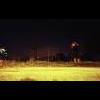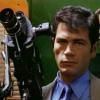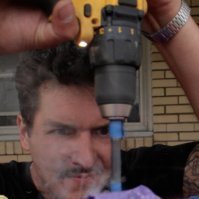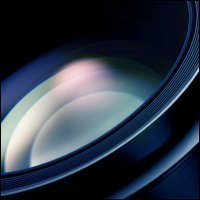
Brian Drysdale
Basic Member-
Posts
5,821 -
Joined
-
Last visited
Profile Information
-
Occupation
Cinematographer
-
Location
Belfast
Recent Profile Visitors
-
A bit late, but I came across this concert recording of the Danish National Symphony Orchestra playing "The Good, The Bad and the Ugly" It's done in the style of the original, but with probably a lot more musicians. It's had a lot of views, but that could be just a smaller number of people viewing many times. The orchestration is something to listen out for.
-
Is it common to use prores on the Sony Venice 2?
Brian Drysdale replied to Edith blazek's topic in Sony
I suspect using ProRes on the camera depends on the production's workflow. Many TV dramas use ProRes, so that could be a factor in deciding which way to go.- 5 replies
-
- sony venice
- prores
-
(and 1 more)
Tagged with:
-
Frank Zappa's "200 Motels" could be the first, although not digital. https://en.wikipedia.org/wiki/200_Motels
-
There are lots of learning resources available online these days, plus numerous books on all aspects of film making and cinematography. There are also short courses/workshops available for people at various levels in their career. I suspect there are other filmmakers in Austin, who it would be worth connecting with. Assuming you're in Texas, there is a lot going on: https://www.austintexas.org/film-commission/made-in-austin/ https://www.austintexas.org/meeting-professionals/why-austin/austin-industries/film-tv-studio-production/
-
Restoration of 16mm Technicolor & Fujicolor Cartoons?
Brian Drysdale replied to Alex Landherr's topic in General Discussion
In the UK Cinelab: https://www.cinelab.co.uk/ and R3store: https://r3storestudios.com/ do this type of work. -
You need a rig that allows you to have the camera on the shoulder, with a viewfinder at the front and a battery at the back, so that you can balance the weight of the lens. There are companies that make such a rig, e.g. Wooden camera. There are also external viewfinders available from various manufacturers.
-
It's a separate item that you buy. You'll find it on p49 & 50 here: https://www.aoassocies.com/wp-content/uploads/2016/11/arri_sr2_usermanual_en.pdf Mark suggests the fast and dirty method, which does work.
-
Shooting at 25fps would the way to go, just make sure that the bar is out of frame, you can get a phase adjuster for that.
-
problems calculating FoV with non-reflex Bolex H16M5
Brian Drysdale replied to Daniel Jewesbury's topic in Bolex
Yes, they usually come with a shoulder bag, but you can easily carry the tripod over your shoulder. The Bolex and lenses is pretty light and easily fits in a small backpack. -
problems calculating FoV with non-reflex Bolex H16M5
Brian Drysdale replied to Daniel Jewesbury's topic in Bolex
The CADIL: http://bolexh16user.net/CriticalGateFocusser.htm Flimsy isn't good for a 16mm film camera, the old friction head made by Paillard for the Bolex wasn't flimsy, although it still wasn't wonderful to work with, even if you could pan and tilt with it. You don't need a full 100mm bowl head, but a 75mm bowl tripod for pro-consumer video camcorders is something to consider, they're easily carried by a single person. -
Looking to buy a barney for Arriflex SR2/3
Brian Drysdale replied to Felix Finken's topic in Cine Marketplace
I was referring to the Arri 16 SR 2 cameras (as mentioned in the article), I gather it was used on a number of productions. Panavision bought Joe Dunton rentals. https://britishcinematographer.co.uk/panavision/ It was more of a hard enclosure, than soft like a barney. -
Looking to buy a barney for Arriflex SR2/3
Brian Drysdale replied to Felix Finken's topic in Cine Marketplace
In the UK, one rental company (Joe Dunton's) made a blimp for the SR1 & 2 for shooting dramas. From memory, it just covered the camera and not the lens. -
You can shoot at 50 ISO, it's night exteriors that would be an issue, but night interiors should be fine. I used to shoot commericals on 16mm with 50D stock, the lights are hotter, but the main issue in the US may be the power, since in the UK you can take approx 3k out of a mains socket. So, you may have to do a mains tie in for the power. If you shoot at T2, it would be at the old 100 foot candles traditionally used on films shooting at 100 ASA at T2.8. I've also shot with 40 ASA Kodachrome on 8mm with limited lighting facilities, so all things are possible.
- 7 replies
-
- kodak
- black and white film
-
(and 6 more)
Tagged with:







